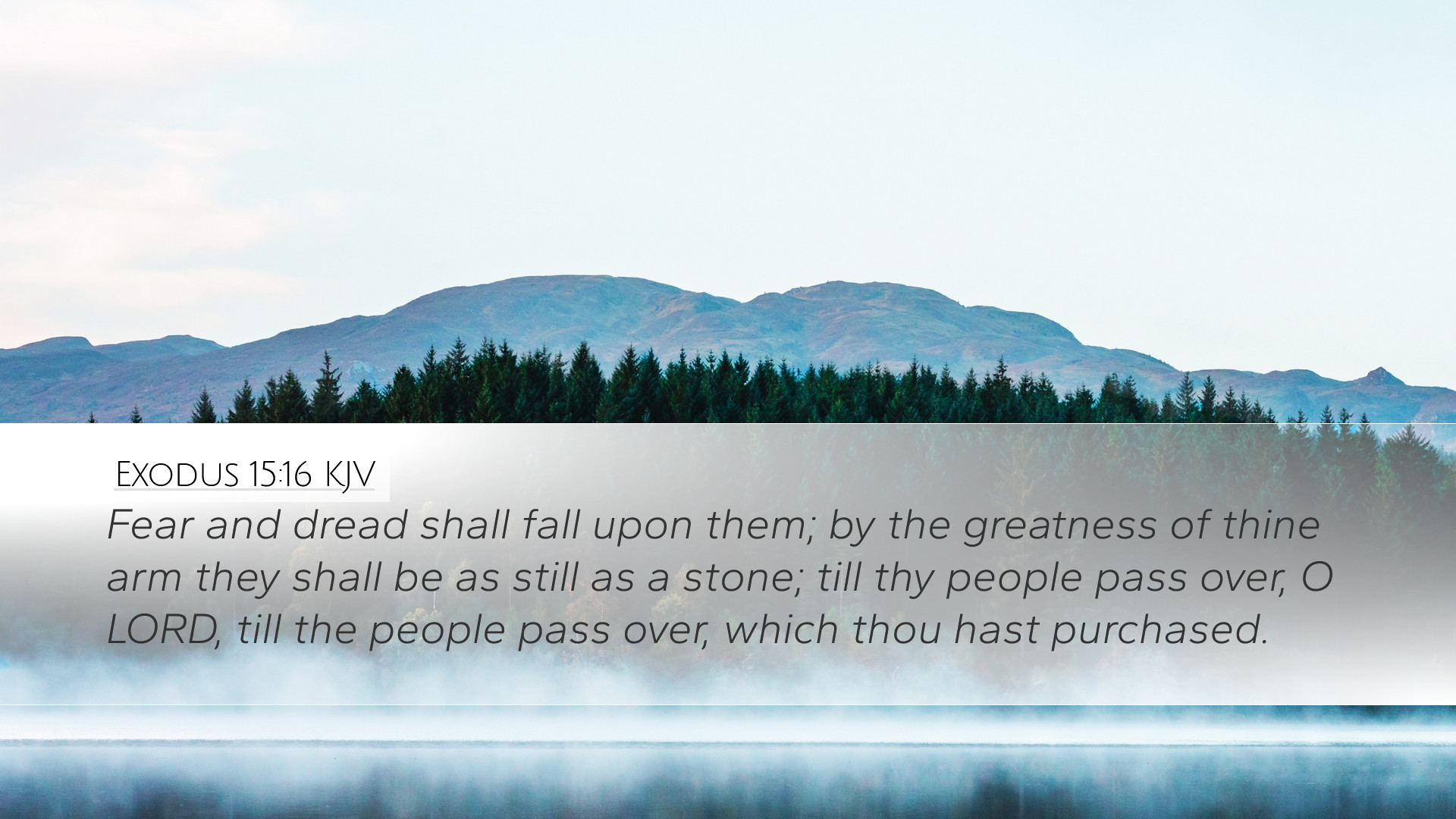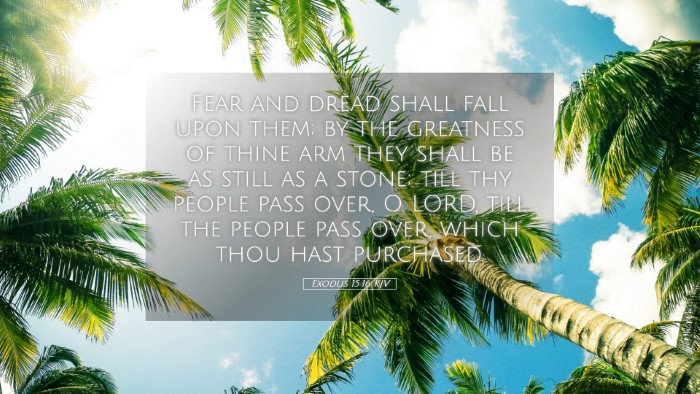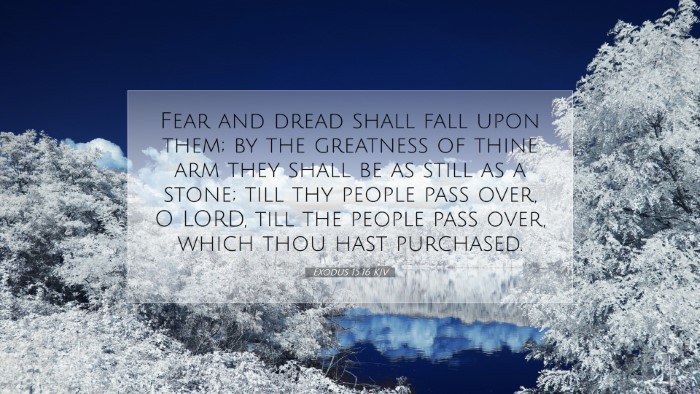Exodus 15:16 - Commentary and Insights
Verse: "Fear and dread shall fall upon them; by the greatness of Your arm they shall be as still as a stone, till Your people pass over, O Lord, till the people pass over whom You have purchased."
Introduction
Exodus 15:16 holds a significant place in the narrative of Scripture as part of the Song of Moses, recounting the deliverance of Israel from Egypt and God’s triumph over their enemies. This verse articulates the profound awe that God's power instills in the hearts of those who oppose His people. In this commentary, we will explore various perspectives on this passage, drawing insights from renowned Biblical scholars including Matthew Henry, Albert Barnes, and Adam Clarke.
Contextual Understanding
The context of Exodus 15 falls after the dramatic events of God parting the Red Sea. The Israelites have just crossed to safety while the Egyptian army faced destruction. This song is a celebratory response to divine intervention, reflecting themes of salvation, power, and divine sovereignty.
Henry notes that the fear and dread mentioned in this verse are not only the reaction of the Egyptians, but also serve as a testimony to God's might, which brings reverence from all nations. Such acknowledgment of God's supremacy emphasizes the importance of His divine support for Israel.
Theological Reflections
The imagery of God's "arm" signifies His strength and protective power, a recurring motif in Scripture to denote divine intervention (see Isaiah 53:1). Barnes elaborates that God’s arm is portrayed as a force that can make the enemies "as still as a stone." This denotes the utter stillness and helplessness of those who oppose God, reflecting how His power can immobilize and neutralize threats to His people.
Clarke points out that God’s power described in this verse serves a dual purpose: it is a warning for the adversaries and a reassurance for the faithful. Both aspects reveal the nature of God’s sovereignty, demonstrating that while He is a deliverer for His people, He is also a formidable opponent to those who defy Him.
Reflections on Fear and Dread
The emotional elements of "fear and dread" underscore a spiritual reality in which God instills a sense of reverence among the nations. This highlights the significant truth that God’s dominion elicits fear from those who stand against His purposes. Henry asserts that the dread that falls upon them is a manifestation of God’s impending judgement.
This concept of fear is not merely a psychological response but rather a theological truth. God's presence compels all creation to recognize His authority. As students of scripture examine this aspect, it serves as a critical reminder of the holiness and power of God that should invoke humility and awe in worship.
Application for Believers
For pastors and theologians, Exodus 15:16 serves as a powerful reminder of God's ability to protect His people and to orchestrate events for their deliverance. This verse encourages believers to trust in God's sovereign hand, knowing that He is actively working on their behalf.
Albert Barnes emphasizes that the expression of fear by the enemies illustrates the universal recognition of God's authority, which should encourage believers in their faith. Christians are called to live boldly, aware that God's power shields and secures their position as His chosen ones.
Furthermore, this passage can instill hope in those suffering trials or facing opposition. It reassures that God is in control, capable of turning circumstances in favor of His people, and ultimately leading them through adversity into His promised blessings.
Conclusion
Exodus 15:16 encapsulates profound truths about God's nature and His relationship with His people. Through the insights provided by Henry, Barnes, and Clarke, believers are reminded of God's immeasurable power, the reverence He inspires, and the assurance found in His deliverance. As one contemplates this verse, it is an invitation to depend wholly on God’s strength and to proclaim His mighty acts, evoking both reverence and gratitude in worship.


